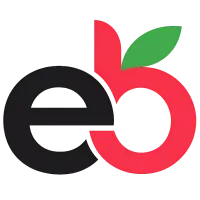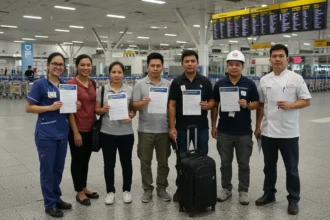For decades, job hunt in the Philippines felt like a cruel game. Stressful. Draining. Unfair. The unwritten rule was simple – if you didn’t have a backer, you didn’t stand a chance. You needed a family friend, a relative in HR, or a powerful name to drop. Without that, your résumé was just another sheet in the pile.
- 🌐 The Digital Advantage: Your New “Backer”
- 🌍 Beyond Jobstreet: The Rise of Niche Platforms
- 🧾 Your Digital Footprint Is Your New Resume
- 💪 Skill Up: From General to Specialized
- 🎤 The Unseen Interview: A New Game Plan
- ❓ FAQs about Job Hunting in the Philippines
- 🚀 The Path Forward: Your Skills Are Your Future
- 🧭 References
From fresh grads in Isabela to professionals in Manila, the story was always the same – a mix of frustration and helplessness. That sinking feeling that your talent and hard work weren’t enough.
But 2025 is different. The rules are changing.
The internet has flipped the game. It’s created a new kind of job market – one where your résumé isn’t judged by who you know, but by what you can do. Your skills, your drive, and your story are now your strongest “backers.”
So, how do you actually find a job in this new landscape – especially if you don’t have connections? This is the story of a new generation of Filipinos taking control of their careers. A story about diskarte, technology, and determination – proving that yes, you can get hired on your own merit.
🌐 The Digital Advantage: Your New “Backer”
There was a time when getting hired in the Philippines depended on who you knew. Family connections, barkada referrals, and yes – the classic padrino system. It was an open secret that “backers” could open doors faster than any résumé ever could.
But times have changed. The internet has rewritten the rules. Your network is no longer limited to relatives or classmates – it’s global now. With just a few clicks, you can connect with recruiters, mentors, and employers from anywhere in the world.
In this era, the internet is your new backer. It can amplify your skills, tell your story, and put your name in front of people who matter. Platforms like LinkedIn, job portals, and even social media can serve as your stage – if you know how to use them right.
The real difference? It’s in how you show up online. You can treat the digital world as just another distraction, or you can use it as your personal launchpad – the space where your career finally takes off.
🌍 Beyond Jobstreet: The Rise of Niche Platforms
Sure, Jobstreet, Kalibrr, and Indeed are still solid choices – they’ve been helping Filipinos find jobs for years. But let’s be honest: relying only on them is like fishing in a crowded pond. Everyone’s there, casting the same line, hoping for a bite.
If you really want to stand out in 2025, you need to look beyond the usual job boards and explore new platforms built for networking, personal branding, and niche hiring. These are the spaces where serious opportunities live – and where recruiters actually notice you.
💼 Platforms You Shouldn’t Ignore
- LinkedIn – Think of this as your career showroom. Recruiters actively search here, and a well-built profile can land you interviews – even without applying. Don’t just list your job history. Post your thoughts, share wins, engage with content, and show what you know. That’s how you get noticed.
- Industry-Specific Communities – In IT? Join Stack Overflow or GitHub discussions. Into design? Go for Behance or Dribbble. In finance or marketing? There are active Facebook and Reddit groups for those too. These spaces often post openings that never make it to mainstream sites.
- Facebook & Telegram Groups – You’d be surprised how many legit recruiters post in groups focused on remote jobs, freelancing, or niche industries. Just be careful – join only groups with active admins and clear anti-scam rules.
- Freelance Platforms – Sites like Upwork, Fiverr, and OnlineJobs.ph remain goldmines for Filipino freelancers. Whether you’re new or experienced, they open doors to global clients and remote flexibility.
💡 Career Move
Don’t just sign up – show up. Share your thoughts, join conversations, post your work, or even comment on others’ ideas. A silent profile is invisible. But an active one? That’s a magnet for opportunity.
🧾 Your Digital Footprint Is Your New Resume
Recruiters today don’t just read your résumé – they research you. Before they even reply to your email, they’ve already typed your name into Google and scrolled through your Facebook, TikTok, and LinkedIn. What they find is your digital footprint, and yes – it now carries as much weight as your traditional CV.
The truth is, your online presence tells your story long before you ever get an interview. So, make it count.
💻 How to Build a Strong Digital Resume
- Create a Professional Portfolio – Don’t just describe what you can do – show it. Use platforms like WordPress, Behance, Dribbble, or GitHub to display your work. Employers love seeing proof of skill, not just bullet points on paper.
- Polish Your Social Media – Clean up posts that could raise red flags (rants, offensive humor, unprofessional photos). Instead, share or engage with content that reflects your expertise or passion in your field. Think of it as curating your personal brand.
- Optimize Your LinkedIn Profile – Use a clear, professional photo. Craft a strong headline that captures what you actually do. Highlight measurable results – instead of saying “Skilled in Marketing,” say “Increased brand engagement by 120% in 6 months.” Numbers speak louder than adjectives.
- Network Intentionally – Skip the random adds. When you connect, send a short, genuine note like: “Hi, I admire your work in X industry and would love to learn from your insights.” It’s small gestures like this that make a lasting impression.
Your online presence is no longer optional – it’s your 24/7 résumé, portfolio, and calling card. Done right, it can open doors, attract collaborations, and even land you job offers while you sleep. 🌙
💪 Skill Up: From General to Specialized
The job market in 2025 is no longer about general skills. It is about specialized skills. It is about being an expert in a specific field. Your skills are your new connection. They are your new backer.
🤖 The AI-Proof Skills: Your Secret Weapon
The rise of AI is shaking up industries everywhere. Chatbots now handle customer service, machines crunch numbers faster than ever, and even writing and design tools are powered by artificial intelligence. For many Filipinos, this creates anxiety: Will my job still exist in five years?
The truth is, yes – some jobs will disappear. Tasks that are repetitive, mechanical, or easily automated are at the highest risk. But here’s the good news: many roles remain safe, because they require something AI can’t fully copy – human judgment, empathy, and creativity. These are your AI-proof skills, and they’re your best weapon for future-proofing your career.
🔑 Skills That Will Keep You Ahead of AI
- Data Analysis & Strategic Thinking
AI can process raw numbers, but it takes a human to interpret patterns and make business-critical decisions. Employers need people who can look beyond the spreadsheets and ask: “What do these numbers mean for our next move?” - Digital Marketing & Social Media Management
From crafting relatable campaigns to engaging with customers in real-time, these skills require cultural understanding and creativity that no algorithm can replicate. Every business today needs a strong online presence – and Filipinos with these skills are in high demand worldwide. - Creative & Communication Roles
Storytelling, content creation, brand messaging, and leadership are uniquely human. AI can suggest ideas, but it lacks empathy and lived experience. Whether you’re a teacher, writer, designer, or manager, the ability to connect emotionally with people is irreplaceable. - Adaptability & Lifelong Learning
More than any technical skill, the willingness to keep learning new tools and methods will future-proof your career. AI may change the way we work, but those who adapt quickly will always be ahead.
🎯 Why Skills Matter More Than Degrees
A diploma still matters in the Philippines, but in the global job market, employers increasingly care about what you can actually do. Can you run a campaign that doubles sales? Can you analyze data to cut costs by 20%? Can you write a pitch that convinces an investor?
This is why you shouldn’t aim to graduate with just a degree. You should graduate with specialized, market-ready skills. That’s what will make you stand out, not only from AI, but also from thousands of other applicants competing for the same opportunities.
📜 Certificates Over Connections: A New Currency
A certificate from a reputable online course can be more valuable than a weak connection. It shows that you are proactive. It shows that you are dedicated to learning. It shows that you are an expert in your field. This is a new kind of currency in the job market.
This table highlights the difference between a general approach and a specialized approach:
🎤 The Unseen Interview: A New Game Plan
The job hunt doesn’t end when you click “apply” – in fact, that’s only the beginning. Every interaction, from your resume to your follow-up email, is part of an unseen interview that employers are quietly evaluating. They aren’t just looking at your skills on paper; they’re observing your professionalism, persistence, and communication style. This is where many applicants lose opportunities without even realizing it. To stay ahead, you must be strategic, proactive, and intentional.
📝 Tailoring Your Resume: Quality Over Quantity
One of the most common mistakes Filipino jobseekers make is sending out the same generic resume to dozens of employers. It feels efficient, but it’s also ineffective. Recruiters can immediately spot a copy-paste application. Instead:
- Mirror the Job Description – If the ad says “content strategy” or “financial forecasting,” make sure those exact phrases appear in your resume (assuming you have the skills). Recruiters often use automated filters that scan for keywords.
- Highlight Relevant Wins – Don’t list every achievement. Select 2–3 accomplishments that directly relate to the job you’re applying for. Numbers (e.g., “increased sales by 25%”) grab attention fast.
- Customize Your Summary – Write a short introduction tailored to the role. Instead of a generic “goal-oriented professional,” say “Digital marketer with 5 years of experience running successful Facebook campaigns for SMEs.”
This extra effort shows employers that you understand what they’re looking for – and that you’re not just mass-applying.
📩 The Power of the Follow-Up
Many applicants think the process ends after the interview. In reality, it’s your chance to leave a lasting impression. A short, well-written follow-up email can tip the scales in your favor because it demonstrates professionalism and enthusiasm. Here’s how to do it right:
- Send it Within 24 Hours – Timing matters. A quick follow-up shows you’re serious about the role.
- Keep it Short and Sincere – Thank the interviewer for their time, briefly restate your interest, and mention one thing from the interview that excited you about the role.
- Reinforce Your Fit – Use one sentence to remind them why you’re the right choice. Example: “I’m confident my background in project management and leading cross-functional teams aligns perfectly with the challenges you described.”
These details may feel small, but they speak volumes. Employers notice candidates who go the extra mile, and in a competitive job market, this kind of initiative can be the deciding factor.
❓ FAQs about Job Hunting in the Philippines
Q1: How to find a job in the Philippines without connections?
A: It’s possible to get hired without “backers” if you know how to stand out digitally. Build a strong LinkedIn profile, showcase your work in online portfolios, and join Facebook/industry groups where recruiters actively post openings. Proactive applications with tailored resumes are often just as powerful as referrals.
Q2: What are the most in-demand skills for job hunters in the Philippines in 2025?
A: Digital-first skills dominate. Employers are looking for digital marketing, data analysis, AI-assisted content creation, UI/UX design, and cybersecurity. Soft skills like adaptability, problem-solving, and cross-cultural communication are equally valuable since these are areas AI can’t replace.
Q3: How important is networking today for a job seeker?
A: Networking is still crucial, but it’s no longer limited to handshakes at events. The new networking is digital. Building a strong presence on LinkedIn, participating in niche online forums, and even sharing your expertise on TikTok or YouTube can create professional opportunities. Employers now often discover talent online before applications even arrive.
Q4: Should I apply to a lot of jobs at once?
A: Focus on quality over quantity. Submitting a hundred generic resumes is less effective than sending 5–10 tailored applications. Employers want to see that you understand their company and role. A customized resume and cover letter show effort and increase your callback chances.
Q5: Do I still need a cover letter when applying for jobs in the Philippines?
A: Yes, but keep it short and personalized. Many Filipino companies still appreciate cover letters, especially for professional and managerial roles. Use it to connect your skills to the company’s goals and show genuine interest. Even when not required, a strong cover letter can set you apart.
Q6: How can fresh graduates compete without experience?
A: Focus on skills, not just experience. Highlight internships, school projects, freelance work, or even volunteer efforts. Employers value initiative – if you’ve built a portfolio website, run a small online business, or joined competitions, that counts as experience. Pair this with strong digital presence to boost your credibility.
Q7: Do online job applications in the Philippines really work, or do I need to “know someone”?
A: Online job applications work – especially on platforms like Jobstreet, Kalibrr, and LinkedIn – but they are highly competitive. Networking (both personal and digital) increases your chances, but many companies now use online recruitment exclusively. The key is to stand out with skills and a polished digital footprint.
Q8: How long does it usually take to get hired in the Philippines?
A: It depends on the industry. For BPO and customer service jobs, hiring can take as little as 1–2 weeks. For corporate or government roles, it can take 1–3 months due to multiple interview stages. The best approach is to keep applying while waiting, so you don’t lose momentum.
🚀 The Path Forward: Your Skills Are Your Future
The job hunt in the Philippines has evolved. The era when connections or “backers” determined your success is over. Today, the real currency isn’t who you know – it’s what you can do, how fast you can learn, and how well you can adapt. Your future is no longer in someone else’s hands. It’s firmly in yours.
Yes, the road ahead won’t be easy. There will be rejections that hurt, emails that never get replies, and moments when you’ll question yourself. But every no brings you closer to the right yes. Every setback is not failure – it’s redirection. It’s the universe saying, “This isn’t your door, but another one is waiting.”
You’re not powerless. You’re equipped. You have skills that matter, a digital space that can amplify your voice, and a drive that no rejection can break. The new job market rewards the curious, the consistent, and the ones who never stop improving.
So keep going. Keep learning. Keep showing up. Because one day, the opportunity that fits you perfectly will appear – and you’ll realize that every struggle, every late-night application, every risk… was worth it. 🌱
Sometimes, all it takes is one brave click – one more application, one more try – to change everything. The world won’t always be fair, but it will always reward those who keep showing up. So chin up, kabayan. The job might still be out there, but so is your moment. And when it comes, you’ll know – this one, I earned on my own.
🧭 References
-
Facebook Civil Service Community – Applying Without Backers
-
Nexford – In Demand Jobs in the Philippines 2025
-
CSC.gov.ph – Free Eligibility for First-Time Jobseekers
-
Bossjob.ph – Best Job Search Sites in the Philippines










